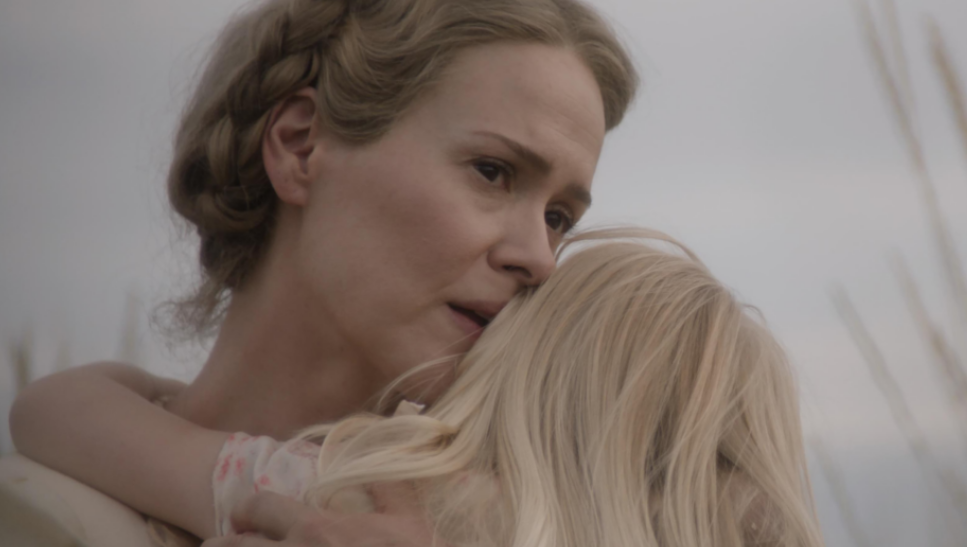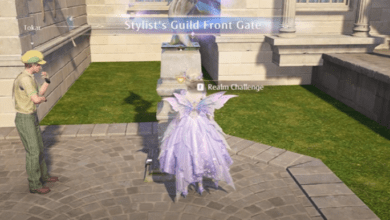Hold Your Breath Review (2024): A Psychological Horror Exploration
The world of horror has always been deeply intertwined with themes of isolation, fear of the unknown, and mental descent. In 2024, these themes seem even more amplified, possibly a by product of the lingering anxieties from the global pandemic. “Hold Your Breath,” a psychological thriller directed by Karrie Crouse and Will Joines, taps into these raw emotions while transporting its audience back to the dust storms of 1933 Oklahoma. Though the film teeters on the edge of brilliance, it ultimately falters due to issues with pacing and character development.

Let’s dive deep into what makes “Hold Your Breath” a compelling watch and where it, unfortunately, stumbles.
A Haunting Premise Rooted in History
Set during the Dust Bowl era, “Hold Your Breath” draws heavily on the real-life devastation that swept across parts of the United States during the 1930s. These dust storms were more than just weather events they were symbols of despair and destruction. The film takes this historical context and laces it with a supernatural twist.
The story centers on Margaret Bellum, played masterfully by Sarah Paulson, a mother left to care for her two daughters, Rose (Amiah Miller) and Ollie (Alona Jane Robbins), while her husband is away. As the dust storms rage, Margaret’s grip on reality begins to falter, especially after her daughter reads a bedtime story about the Gray Man a mythical figure believed to lurk in the dust and drive people to madness.
This setup, while not entirely unfamiliar in horror, brings something fresh by melding psychological terror with historical fiction. The storm becomes not just a backdrop but a character in itself, symbolizing both external threats and Margaret’s unravelling mind.
The Eerie Atmosphere: A Masterstroke of Visual Horror
If there’s one thing that “Hold Your Breath” excels at, it’s the atmosphere. From the moment the film begins, the audience is transported to a world where dust and despair choke every frame. The cinematography, handled by Zoë White, captures the barren, desolate plains with haunting precision. The color palette muted browns and grays mirrors the bleakness of Margaret’s internal world.
Dust storms, or “black blizzards,” serve as the primary vehicle for both terror and metaphor. As the swirling clouds engulf the landscape, the audience is left in a state of visual ambiguity, never quite sure if the danger is real or imagined. This use of environment to mirror psychological turmoil is a classic horror trope, and it works effectively here.
You can almost feel the dust settling on your skin as you watch, making the experience all the more immersive. The storms are not just atmospheric; they’re symbolic of Margaret’s internal chaos, leaving viewers to wonder if the real monster is outside the door or within her mind.
Sarah Paulson: The Heart of the Film
At the center of “Hold Your Breath” is Sarah Paulson, delivering a performance that grounds the supernatural elements of the film. Known for her ability to convey emotional depth, Paulson brings Margaret to life with a mix of vulnerability and paranoia that makes the audience empathize with her plight. Her eyes, often hollow and frantic, communicate the sheer desperation of a mother trying to protect her children while questioning her own sanity.
Margaret’s unraveling mental state drives much of the film’s tension. As she sleepwalks through terrifying visions and encounters strange figures in the dust, Paulson makes it impossible to look away. Her portrayal of a mother torn between reality and delusion is a masterclass in psychological acting.
However, despite Paulson’s powerhouse performance, the script fails to dive deep enough into Margaret’s emotional core. We see her fears, her struggles, and her protectiveness over her daughters, but the film doesn’t explore the root cause of her trauma in a way that would elevate the story’s emotional impact.
The Supporting Cast: Underutilized Talent
While Paulson shines, the same can’t be said for the rest of the cast. Amiah Miller as Rose, Margaret’s eldest daughter, does well with what she’s given, but her character feels underdeveloped. The film hints at Rose’s fear of becoming like her mother, yet it never fully explores this dynamic, leaving a potentially rich subplot untouched.
Annaleigh Ashford, who plays Margaret’s neighbour Esther, offers a brief moment of warmth in an otherwise cold narrative. Her character, like many others in the film, exists more as a plot device than a fully realized individual. This lack of character depth is a significant flaw in a movie that relies so heavily on emotional stakes.
Even Ebon Moss-Bachrach as a local preacher feels underused, despite delivering one of the film’s standout scenes a tense exchange at a dinner table. The supporting cast is brimming with potential, but they’re not given enough room to leave a lasting impression.
Themes of Motherhood and Madness
At its core, “Hold Your Breath” is a story about motherhood both its strength and fragility. Margaret’s desperation to protect her children is palpable throughout the film, and her mental deterioration speaks to the immense pressure that mothers, especially those in isolated and dangerous environments, often face.
The film flirts with the idea that maternal pressure can lead to madness, especially in the suffocating conditions of the Dust Bowl. However, much like its character development, this theme feels underexplored. There’s a better, more profound story hidden beneath the layers of dust one that could have delved deeper into the psyche of mothers in such harsh conditions.
The Psychological Horror of Ambiguity
The film’s decision to leave much of its horror unexplained can be both a strength and a weakness. The Gray Man, the supernatural figure lurking in the dust, is never fully fleshed out, leaving the audience to wonder if he’s real or a manifestation of Margaret’s deteriorating mind. Ambiguity in horror can be effective, but in “Hold Your Breath,” it often feels like a crutch.
By the end of the film, viewers may find themselves craving more answers. The lack of clarity around the supernatural elements might leave some feeling frustrated rather than intrigued. While the film’s atmosphere is undeniably creepy, its narrative ambiguity ultimately detracts from its impact.
Pacing Issues and Missed Opportunities
One of the most significant flaws in “Hold Your Breath” is its pacing. The film starts strong, with a slow build that creates tension and anticipation. However, the middle act drags, and the tension that was so carefully built begins to dissipate. The film’s climax, while visually stunning, doesn’t deliver the emotional payoff that the story promises.
There are also several missed opportunities throughout the film. Margaret’s backstory, hinted at but never fully revealed, could have provided a much-needed layer of psychological complexity. Additionally, the relationship between Margaret and her daughter Rose could have been a rich source of emotional conflict, but it remains largely superficial.
Conclusion: A Film with Promise, but Not Without Flaws
“Hold Your Breath” is a film that tantalizes with the promise of greatness but ultimately falls short. Its atmosphere is chilling, its visuals are arresting, and Sarah Paulson’s performance is captivating. Yet, the film’s sluggish pacing, underdeveloped characters, and reluctance to provide narrative clarity prevent it from reaching its full potential.
For fans of atmospheric horror, the film’s mood and style may be enough to warrant a watch. But for those seeking a more emotionally resonant and tightly woven narrative, “Hold Your Breath” may leave you feeling like something is missing much like the dust storms that obscure the horizon, hiding the truth just out of reach.





